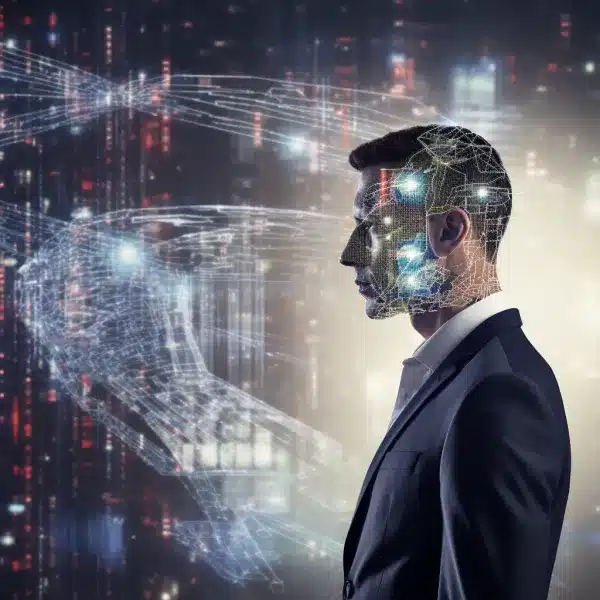
The Influence of AI on Political Campaigns and Elections
Artificial Intelligence (AI) is rapidly transforming various aspects of our daily lives, and political campaigns and elections are no exception. As technology continues to advance, political strategists are increasingly turning to AI to enhance their campaign strategies and gain a competitive edge.
AI is revolutionizing political campaigning by providing powerful tools for analyzing vast amounts of data. Campaign managers can utilize AI algorithms to process information gathered from social media, websites, and other online platforms to identify trends, sentiments, and public opinions. By understanding voter behavior, preferences, and concerns, political parties can tailor their messaging and communication strategies to effectively target specific demographics.
Machine learning algorithms enable politicians to leverage AI in predicting election outcomes and identifying potential swing voters. By analyzing historical voting patterns, demographics, and socioeconomic data, AI algorithms can generate insights that help campaigns strategize and allocate resources more efficiently. This data-driven approach allows for precise targeting, messaging, and mobilization efforts, as well as optimizing campaign spending.
Moreover, AI is transforming political advertising. AI-powered systems can deliver personalized messages to voters based on their interests, locations, and previous engagement. Advertisements can be strategically placed across various digital channels to reach targeted audiences effectively. AI algorithms can also analyze and interpret campaign ads’ performance, enabling quick adjustments and improvements for maximum impact.
AI’s influence on elections goes beyond campaign strategies. It plays a significant role in combating disinformation and protecting the integrity of democratic processes. AI algorithms can detect and flag manipulated information, fake news, and social media bots. By identifying malicious actors and their tactics, AI helps ensure that voters have access to accurate information and fair debates.

Benefits of AI in Political Campaigns and Elections:
-
- Improved targeting and personalization of campaign messages.
-
- Better allocation of campaign resources based on data-driven insights.
-
- Enhanced ability to predict election outcomes and target swing voters.
-
- Optimized advertising strategies for maximum impact.
-
- Strengthened cybersecurity measures against disinformation and fake news.
However, the rise of AI in political campaigns also poses challenges and ethical concerns. Questions of data privacy, algorithmic bias, and the potential for intrusive surveillance need careful consideration. Implementing AI technologies must be accompanied by robust regulations and transparency to ensure responsible use and maintain public trust.
As AI continues to evolve, political campaigns and elections will undoubtedly undergo transformative changes driven by technological advancements. The ability to harness AI’s power for informed decision-making, improved voter engagement, and safeguarding democratic processes will shape the future of modern politics.
References:
How can the integration of AI algorithms in political campaigns perpetuate or mitigate existing biases in voter targeting and information dissemination
AI integration in political campaigns can impact voter targeting and information transmission biases, both positively and negatively. Here are several ways integration can either reinforce or reduce biases:
Bias perpetuation:
1. Data biases: AI algorithms use past data to discover patterns and anticipate outcomes. If data contains biases, such underrepresentation of specific ethnicities or communities, the algorithm may perpetuate them in targeting and decision-making.
2. Filter bubbles: AI systems can tailor material depending on user preferences and historical behavior. Filter bubbles develop when individuals only get information that confirms their opinions and preferences, reinforcing prejudices and limiting alternative perspectives.
3. Algorithmic opacity: Complex AI systems produce decisions that are hard to understand. Unintentional biases in algorithms can be difficult to recognize and correct, leading to their persistence.
Bias reduction:
1. Better targeting precision: AI algorithms can recognize individual preferences and give customized information. This accuracy enables campaigns to reach underrepresented communities and remove biases in voter targeting.
2. Improved openness and accountability: AI algorithms can be made more accessible and intelligible. This will enable external audits and assessments to uncover and reduce biases, promoting fair targeting and information distribution.
3. Diverse training data: Training AI systems with ample datasets can minimize voter targeting biases. Including varied perspectives and experiences can reduce biases in historical data, promoting inclusive and equitable campaign methods.
AI algorithms in political campaigns can perpetuate biases but also offer chances to counteract them through improved targeting accuracy, transparency, and varied training data. Maintaining a balance and ethical use of AI technologies is essential for reducing bias in voter targeting and information dissemination.
In what ways can AI contribute to the enhancement or manipulation of political messaging during election campaigns?
AI can enhance or manipulate political message during election campaigns in several ways.
1. Personalized Advertising: AI algorithms evaluate data such as social media activity, internet history, and personal interests to create customized political ads. Campaigns can target specific individuals and enhance engagement with tailored messaging.
2. Sentiment Analysis: AI can evaluate social media postings, comments, and news stories to assess political candidate and topic sentiment. Using this data, campaigns can tailor their messaging to reach a wider audience.
3. Deepfake Technology: AI-powered manipulation of photos, audio, and video creates believable fake media. Falsifying political statements, interviews, or scandals can have serious ramifications for campaigns and public perception.
4. Automated Fact-Checking: AI can verify political statements and speeches. Quickly identifying inaccurate or misleading material enables campaigns to address inaccuracies and improve transparency.
5. Chatbots and Virtual Assistants: AI-powered tools can engage voters on campaign websites and social media. They can answer inquiries, provide candidate information, and influence public opinion with a controlled perspective.
6. Targeted Messaging: AI systems can identify certain groups or swing voters by analyzing demographic data and voter profiles. Campaigns can tailor messaging to individuals, potentially affecting their political attitude or voting behavior.
7. AI can monitor social media trends, interaction patterns, and user behavior to optimize campaign message reach and impact. AI-powered bots or algorithm manipulation can be used to promote viral content and magnify specific themes.
Although AI technology can improve political messaging, it also raises issues about misinformation, unethical behavior, privacy violation, and public opinion manipulation. Responsible and transparent use of AI during political campaigns requires regulation and ethical principles.

What are the potential ethical implications of incorporating AI technologies into political campaign strategies?
Using AI in political campaigns may have ethical consequences, such as:
1. Privacy concerns: AI systems may gather and analyze significant personal data, possibly posing privacy and data protection risks. Misuse of personal data might result in privacy invasion and rights violations.
2. Public opinion manipulation: AI can affect public opinion through tailored messaging and micro-targeting. This raises questions regarding political campaign fairness and openness, as individuals may encounter biased or deceptive material.
AI algorithms trained on historical data may amplify societal biases (3). AI technology can perpetuate and amplify existing preconceptions, resulting in discrimination and inequality in political campaigns if biases are not addressed.
4. Lack of accountability: AI systems can make autonomous decisions, making it challenging to assign responsibility or accountability for political campaign decisions. Insufficient transparency can harm democracy and public trust in politics.
5. Misinformation creation: AI may create convincing fake news, deepfakes, and modified content, making it hard to distinguish between actual and fake information. This can propagate misinformation, harming democratic processes and public discourse.
6. Digital gap and unequal access: Using AI in political campaigns may disadvantage populations without access to modern technology and skills. This may further marginalize underrepresented groups in politics.
7. Job displacement and unemployment: AI technology in political campaigns may cause staff and strategist job losses by automating some jobs. This may have substantial economic and social effects on individuals and communities reliant on political campaign employment.
Policymakers and campaign strategists must examine ethical issues and create legislation, guidelines, and transparency systems for ethical use of AI in political campaigns.









Thank you for your sharing. I am worried that I lack creative ideas. It is your article that makes me full of hope. Thank you. But, I have a question, can you help me?
Your article helped me a lot, is there any more related content? Thanks!